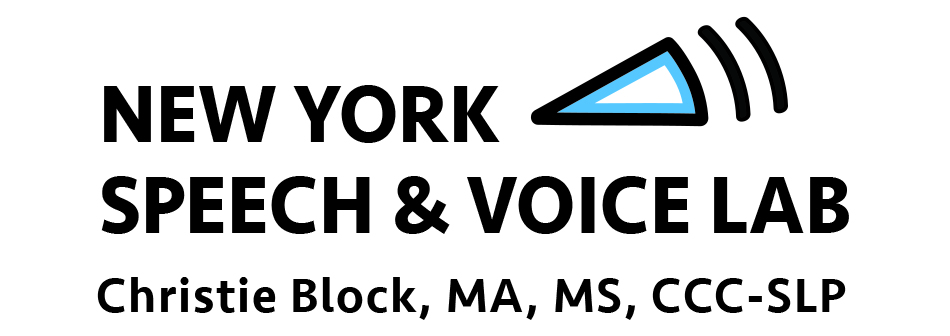Here is a video done by Laura Lumsden of Cosmopolitan.com about my work with two clients who are transfeminine and gender queer. Congratulations to Angel S. and Alex F. on their successes and a big thanks to them for sharing their stories.
Caitlin Jenner and feminine voice training • New York Speech & Voice Lab in the press
In reaction to Caitlin Jenner’s recent comment about wanting her voice to be more feminine, Korin Miller of Yahoo Health asked me about the nature of feminine voice training.
Male voice, female body: How transgender women like Caitlin Jenner can feminize their tone
Embrace your best possible self
Changing your voice and communication patterns to better conform to your gender expression can be challenging. You must learn to play your vocal instrument as well as you can with what you have, even if you have seen improvements from testosterone (transmasculine) or pitch-raising surgery (transfeminine). In addition to compensating for biological limitations, you must counter habitual ways of talking that your brain and speech mechanism are used to producing. BUT, with practice and mindfulness, these challenges can be met with new, useful, and more satisfying ways of talking.
In that process, you should celebrate your overall improvement and even your small successes along the way, rather than expecting perfection or expecting to sound exactly cisgender. Aiming for your best possible voice is not only realistic but it is chance for you to accept yourself and be more confident and happy with your new skills. And in that way, other people will be more likely to respond positively to you and be more open to gender diversity!
The road to authenticity
The process of developing voice and speech habits that are more congruent with your gender identity, both for internal comfort and external expression, can be mysterious and challenging. You start out by trying various ways of talking that can indeed feel foreign or silly, and because of that, some people avoid working on their voices for fear that they will sound not only incongruent but unnatural as well.
Many people don’t realize is that there is a neurological component that shapes how the process will go. Having that foreign feeling is actually a natural part of learning a new behavior. That higher pitch or that bigger voice must feel new and weird because it is different than what you are used to. The key is to check whether your feelings of weirdness are because you are trying something new or because you actually sound unnatural.
With good feedback from a professional or an informed, experienced supporter, you can identify if your voice/speech modifications sound natural or not. My clients usually go through an initial period of feeling fake even though they are sounding natural in their new speaking. If you allow yourself to practice and use new ways of talking, these ways will gradually feel more real, both emotionally and physically, as the brain retrains the muscles to produce the desired skills in a more automatic way.
So, the bottom line is that there is often a period of feeling weird and fake before a more authentic feeling settles in. Just stick with it!
"Can changing how you sound help you find your voice?" • New York Speech & Voice Lab in the press
Here is a radio news story that was broadcast on National Public Radio’s All Things Considered on 10/14/14 about my voice work:
I am pleased with Laura Starecheki’s story, and I particularly liked one of her main messages: even a small amount of voice change can result in significant life improvement. Indeed! Many clients want that perfect voice, but luckily, perfection isn’t even necessary. For most people, it just takes practice and a willingness to try new techniques in the moment. Interestingly, you must notice and adjust your voice in order for your voice to not be noticed!
As I help transgender people fit in and lead safer, more authentic lives, I also aim to help you embrace your beautiful individuality, in the hope that you can be confident, without perfection, and that we together can promote diversity and educate others about transphobia, stereotypes, sexism, and binary gender assumption. Because in the end, as Laura says, the world should pay attention to WHAT we say, not HOW we say it.
Thanks go to Laura for creating a thoughtful and respectful piece, and particularly, for hitting upon the essential and extremely serious aspects of transgender experience without sensationalizing it. And kudos to Tina W., Monica H., and the anonymous people whose voices we hear from one of my recent workshops (you know who you are!) for sharing their stories and voices for the piece. These folks, and all of you out there who are working on your voices, should be proud of your courage and perseverance, voice-wise and otherwise!
